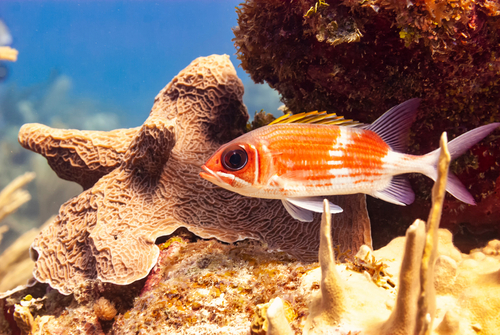People keep fish for two major reasons; as pets (it is believed that keeping a fish in your home brings luck and prosperity) or for agriculture (fish are very nutritious and can fetch a lot of money).
No matter the reason, however, every fish keeper wonders about this at the start: do fish poop, and how do you go about removing fish poop from aquarium or tank water?
Well, the answer to the first question is a solid YES. A fish is a biological organism, so it has an excretory system that enables it to remove waste products. Removing waste materials from their body is an essential process, and if your fish isn’t doing it right (or at all), there is a chance something is seriously wrong.
Marine fish species have an excretory cycle that depends on many key factors, including health condition, fish food, and their habitat. And when you understand these cycles, you will know how often to remove accumulated waste products.
After all, while wild fish live in places where water flow renews the habitat, most domestic fish live in the same place where they poop and pee, and it must be cleaned out to prevent health problems.
So, in this exhaustive guide to fish excrement and how to deal with it, we will give you all the information you need to deal with fish poop and pee, including what food to give them for a healthy cycle.
Contents
An Overview of Fish Excretion
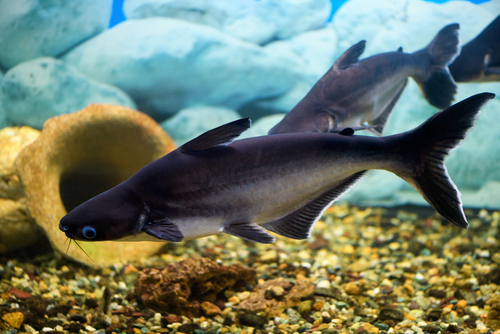
Fish eliminate the waste matter in their bodies by producing urine and feces, and the relevant body functions are basically the same for both fish that live in tanks and those that live in ponds.
Every fish has two kidneys that aid in the body’s elimination of waste materials, much like a typical human. Diverse fish species have different kidney shapes and sizes. The features, though, are commonplace. They all function as filters, removing waste materials and promoting the health of the fish.
However, fish differ from other organisms in the frequency of their excretion. Fish often poop every other day, unlike humans, who typically do that several times a day.
This is because the kidneys function quite differently in terms of frequency, taking quite a while to complete the process of producing fish poop and pee.
Also read:
Can Betta Fish Live with Goldfish?
How Do Fish Poop
Generally speaking, fish tend to have an anal vent or cloaca through which they expel waste. However, pooping methods may vary between species as some pass both poop and pee from the cloaca, while other fish pee through their mouth.
For example, Discus and Betta fish have different ways of pooping and peeing; Discus fish poop and pee come out of the anal vent and the mouth, respectively, while Betta fish poop through the anal vent and pee through the gills.
However, most fish also pee through the anal vent, while some pee through urinary pores. But let’s look at how fish process excreta.
How do Fish Process Poop?
The excretory system of a fish operates primarily around the kidney. And while this isn’t far from the truth for humans (since the waste products go through the kidneys and get filtered out of the system), the functionality has marked differences.
Here, we will examine both the pooping and peeing process since both involve the kidney.
Fish Poop
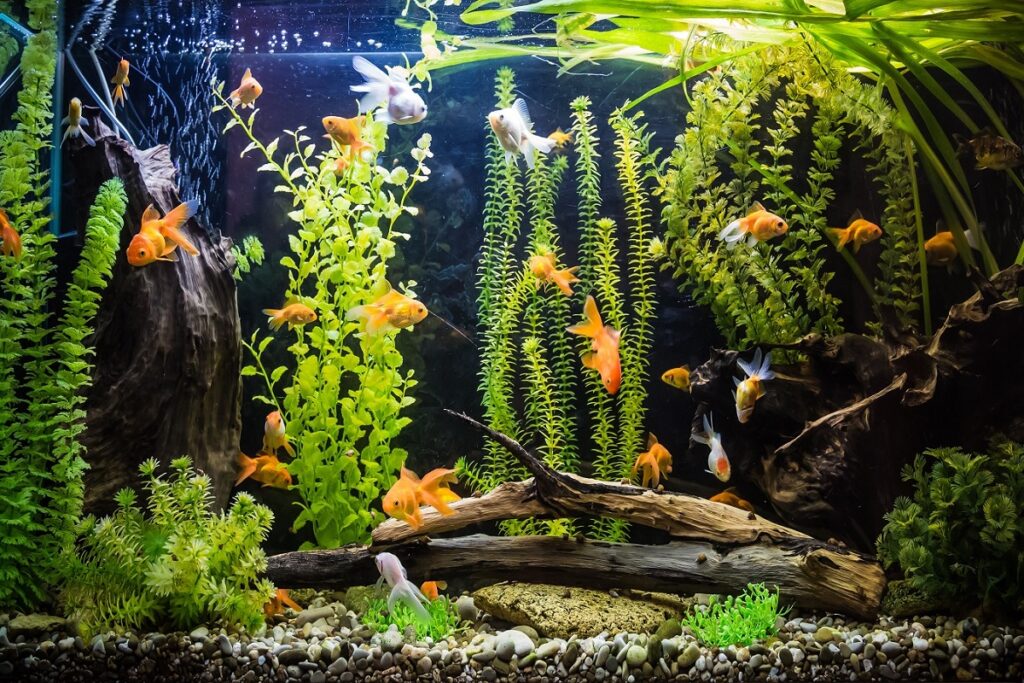
When fish eat, the ingested food passes the gullet to the stomach, around which the digestive system revolves. After digestion here, the food leaves in liquid form to the intestines, where more absorption takes place.
The rest passes through the kidney, and along with other waste created by digestion, all the poop leaves the body through the anal opening/cloacae at the rear end.
Fish Pee
The function of the kidney is even more prominent here. In fish, the kidneys are slower at processing substances than the digestive system.
Little wonder, then, why fish urinate much less frequently, sometimes just once every 24 hours. Fish also vary in kidney shape, as some have longer kidneys than others.
In many fish, the opening cloaca is where the urine is released during urination. In some species, the tail and gills are also used for excretion.
The presence of a bladder is another distinguishing feature of the excretion process in fish as contrasted to humans. Without being kept in the filter, the filtered waste in urine is immediately expelled from the kidneys.
What Does Fish Poop Look Like?
Tank or aquarium owners need to be able to tell what the poop will look like since it might be hard to spot. This is especially true when water plants or coral reefs are in the tank.
Large roundish pellets are probably fish poop if you find them scattered across the substrate. Just make sure you have a filter to remove the built-up waste or frequently change the water to avoid disease.
You should also know that your fish’s poop can also vary in color. In rare instances, you can tell what a fish ate from the color of the poop. For instance, when the fish poop is overly brownish or red, then the fish likely ate an excessive amount of blood worms.
And if they eat a lot of greens and algae, you might anticipate seeing greenish poop. Indicators like this also enable you to determine the overall health state of the fish and what changes your fish’s diet needs.
Now, noticing a constant change in the color of fish poop is no cause for alarm; it’s perfectly normal. However, when you notice whitish poop, you should be worried, as this may indicate serious malnourishment or a problem in the digestive tract.
You should immediately call the vet; and, in the meantime, get the fish started on more wholesome and nourishing foods.
How Regularly Do Fish Poop?
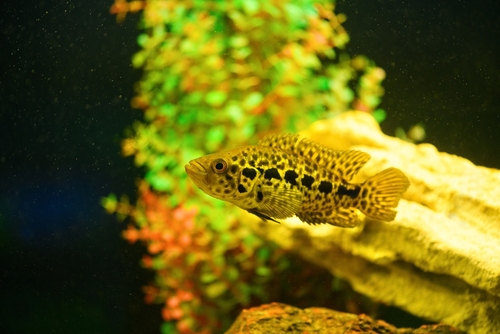
Changing your fish tank water requires understanding fish excretory cycles and the factors that affect them. Generally, constantly-fed fish tend to poop a lot less often than they pee (every 24hrs or the latter), as each poop exercise usually comes once every 48 hours. Of course, when they are not constantly fed, they may poop at even longer intervals.
But why this delay? It’s because it takes that long(48 hours) for their body to process the food, absorb the essential nutrients, and produce urine and poop.
However, while infrequent eating can lead to disruption in poop and pee frequencies, illness can also be a factor. So if you notice that your fish poops less frequently than every 48 hours despite a frequent and healthy fish diet, it may be time to seek medical advice.
In any case, we will now look at the situation for two fish types: saltwater and freshwater fish.
Freshwater Fish Poop
The natural habitat for the class of freshwater fish like Betta Splendens is salty lakes and water basins. Freshwater fish tend to retain salts in their bodies, and they do this partly by expelling a lot more water out of their bodies than other types like brackish water or saltwater fish. As a result, their poop is usually less solid.
This heavy retention of salt (in addition to ammonia) in their bodies also affects their pee, which tends to have little or no odor.
Saltwater Fish Poop
Saltwater fish live in water bodies with high salt concentrations, such as seas and oceans. So, naturally, they are the polar opposite of freshwater fish in terms of the need for salt retention.
Instead, the kidney’s main job in saltwater fish is to retain water and eliminate extra salt from the body. When compared to freshwater fish, they tend to urinate far less.
Every two days, you’ll frequently discover them releasing their excrement, and they mostly expel waste materials through their skin and gills.
Is Fish Poop Good or Bad?
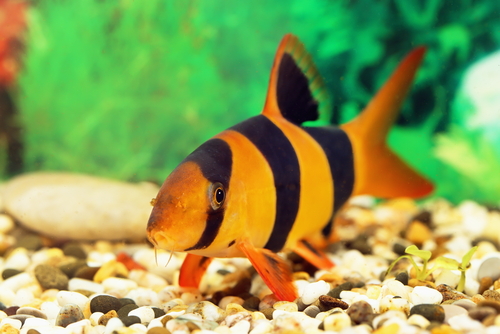
What are the positive effects of fish poop, and are there any negative effects to consider? As we’ve already established, fish poop functions as a very good indicator of the health of the fish in question.
You can use the color of a fish’s excreta to determine what kind of food it has eaten and what new changes you must make to its diet. And while most colors don’t indicate a problem, at least one color (white) indicates possible underlying health or nutritional problems.
But aside from this, fish poop plays another significant role in the ecology, specifically for plants and the carbon cycle.
Fish Poop, the Carbon Capture, and Plant Life
Recent studies indicate that fish poop plays a very underestimated role in the global carbon cycle. By merely eating and pooping, fish capture and transfer over a billion tonnes of carbon from the ocean surface to the bottom for storage, contributing to the ecological balance.
But closer to home, it’s very usual to use animal feces as manure for plants; it usually has positive effects since it tends to contain undigested nutrients that can improve the soil nutrients profile, improving plant growth.
Fish feces are no exception to this, as they are usually rich in essential nutrients to aid plant growth. For instance, aquatic plants such as coral reefs benefit greatly from the excess nutrients in the poop, which include high amounts of Phosphorus and Nitrogen.
When fish pee and poop in the water, the coral reef will swing its tentacles so that its arms can capture the waste and absorb its nutrients. Even algae grows well on fish poop, presenting a natural food cycle since some fish eat algae.
However, are they always good for plants? Well, excessive amounts of everything is bad. Bring to mind the algae we just talked about. Removing poop and pee as often as possible is necessary because failing to do so means tonnes of fish poop in the bottom of the fish tank, which can suffocate the fish’s habitat and the plants in there.
Furthermore, nutrients are not the only things in fish poop, as it contains tons of toxic material that are bad news, especially when allowed to accumulate. So, it is imperative for fish tank owners to regularly clean out the tank to avoid the build-up of these bad elements.
Can Fish Get Constipated?
We’ve already seen that fish can poop less frequently than they should. But they can also poop more frequently than normal. Constipation in a fish may be indicated by the presence of stringy excrement that adheres to the fish’s body.
So, how can you avoid this problem?
- Avoid flake foods and pellets that increase the fish’s odds of suffering constipation.
- Follow strict instructions provided by the manufacturer or health experts when feeding pellets to your fish. And if you must feed them complex food or a pea diet, you want to make sure you are doing it in the right manner and quantities. So, again, you should see the vet.
How to Remove Fish Poop from a Fish Tank
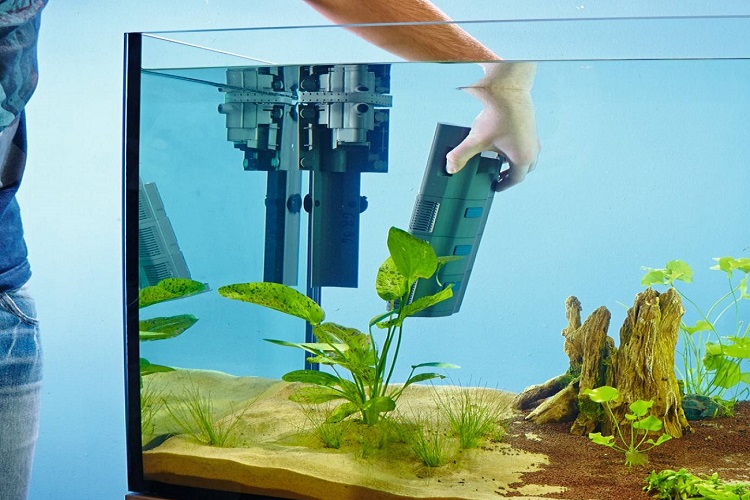
While rich in nutrients that can be vital for plant growth, fish excrement also contains harmful compounds and parasites. In the long run, you don’t want to leave them in the tank to deteriorate.
Fish excrement will sink to the bottom of the tank like pellets because it is particulate; so cleaning is necessary. Here are some great tips to guide you in cleaning out your fish tank.
Tip 1: Turn off Every Electrical Component
Many good fish tanks these days contain a slew of electrical components. You might have something like a filter, an air pump, and even a few lights to illuminate the tank, and all these components increase the chances of an accident.
For instance, while cleaning the tank, your hand will be submerged; thus, any contact with the electronics could result in electrocution.
This is why you must cut the power to these pieces of equipment or turn them off.
Tip 2: Clean Out the Algae First
Always begin with the algae while cleaning the fish poop and the tank as a whole. As we’ve already seen, algal development accelerates significantly when fish poop builds up until the algae saturates much of the water.
As such, you should be sure to eliminate them as much as possible. However, avoid scraping everything out, especially if your fish rely on algae growth for sustenance.
For this task using an algae scraper is usually the best choice, as it removes the excess built-up filth while also cleaning the sidewalls.
Tip 3: Clean the Exterior of the Fish Tank
The continual splashing and evaporation of water might cause dirt to build up on the tank exterior, so you should also pay attention to this part when cleaning. Typically, cleaning the outside only requires a clean damp cloth or towel and a sanitizing spray, and you will have your tank sparkling clean in no time.
Additionally, make sure the tank’s outside is constantly dry during washing. Following these guidelines will ensure that your tank stays clean and your fish are healthy.
Tip 4: Clean All Decorations
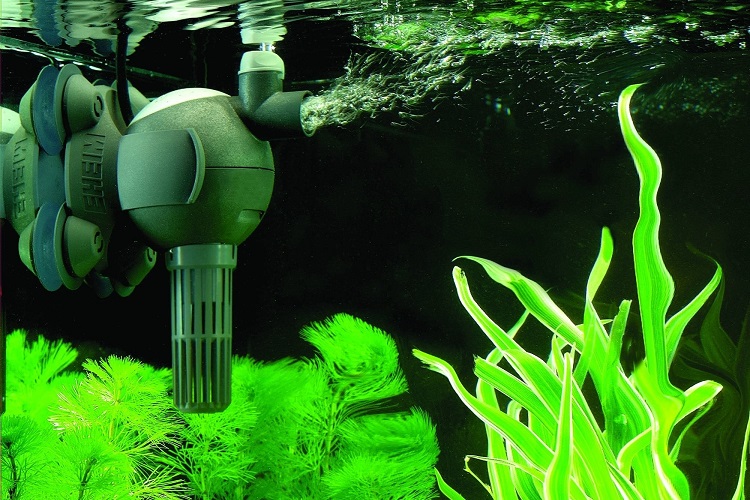
In addition to the tank interior and exterior, all decorations and equipment inside the tank also require cleaning. It is typical for fish to randomly pee or poop in the tank throughout their life cycle, and some of that might become lodged in the decoration and other equipment placed inside the tank.
All elements like prop aquarium plants, caves, and even the machinery, such as filters and pumps, should be brought out and thoroughly cleaned. You can use isotonic water when cleaning these.
Especially with electronic equipment, any residual poop stuck in the wrong place can mess with the functionality. As such, place the objects back only when you are satisfied they are now poop-free.
Tip 5: Remove Some Water
Fish adjust to their water conditions gradually. So the last thing you want to do when cleaning the tank is to completely change the water without giving the fish any time to adapt first.
To start, it is typically suggested to change 40–50% of the water, and you can usually accomplish this very quickly and effectively by using a gravel vacuum. Gravel vacuums aid in getting rid of the collected fish waste on the substrate.
Tip 6: Have Your Replacement Water Ready Beforehand
Simply replacing old water in your fish tank with tap water is a bad idea. Tap water contains amounts of chlorine that are not favorable for fish.
As such, you will do well to specially prepare the replacement water beforehand. To make the water suitable for the demands of the fish, treat it with neutralizers and water conditioners.
How Often Should You Clean Your Fish Tank?
Most fish tanks need to be cleaned once every two weeks, depending on how many you have and how nasty they are. Clean your aquarium more frequently if it smells bad or if you have an algae problem.
However, these symptoms do point to an issue that must be solved quickly, so it’s better to make it a practice to check the quality of your water each time you clean out the aquarium. This will ensure everything is in order all the time.
Closing Thoughts
It’s important to monitor your fish’s pee and poop as they serve as important indicators of their well-being and health. So, if there is a health issue, you can see it right away.
We trust that this article has covered everything there is to know about fish excretion. Keep the tank as clean as possible at all times, too. A clean tank is the only option for the fish’s best health.

Ian Sterling, founder of Fishlab.com, began his aquarium journey over 30 years ago, driven by a deep fascination for fish and their diverse personalities. His website, Fishlab.com, is dedicated to making fishkeeping accessible and enjoyable, offering beginner-friendly guidance, expert insights, and a community for aquarists to connect and share experiences.


